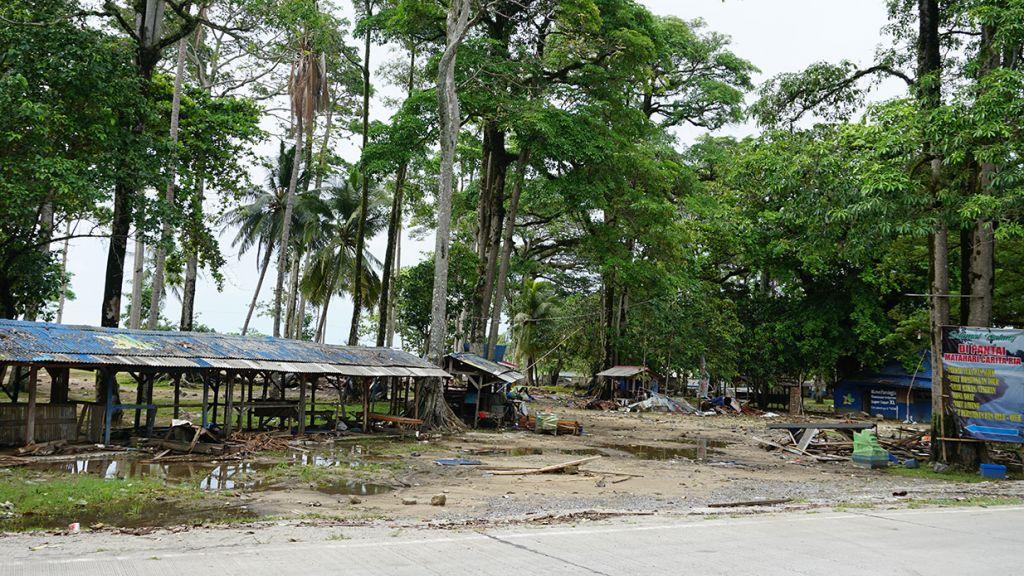
High Tide and Tsunami in Sunda Strait, Indonesia
Update 1: 22 Dec 2018
On 22 December 2018, at 23:15 hrs, the Indonesia National Agency for Disaster Management (BNPB) and the Agency for Meteorology, Climatology, and Geophysics (BMKG) reported the occurrence of a high tide hitting Carita Beach in Banten Province. The BNPB clarified that tsunami-like waves occurred at 21:27 hrs. and hit the coast around the Sunda Strait, especially in Pandenglang, South Lampung and Serang districts. The disaster has caused 43 deaths, 584 people injured and two people missing. The MSF head of mission and medical coordinator in Indonesia are currently in the area to coordinate the support to the health interventions.”
Read Elis's Full story here.
Update 2: 23 Dec 2018
As of 5:30 pm today, the Indonesian National Disaster Management Agency (BNPB) reported that the number of victims continues to increase: 222 people died, 843 injured and 28 people missing. Material damage include 556 damaged housing units, 9 heavily damaged hotel units, 60 damaged culinary stalls, and 350 damaged boats. These are all concentrated in 4 districts: Pandeglang, Serang, South Lampung and Tanggamus Regencies.
“Since early 2018, MSF has an adolescent health project in Indonesia supporting the Ministry of Health in Labuan and Carita in Pandeglang district — the area which was severely hit by the tsunami following an eruption of Anak Karakatoa volcano on the late evening of 22 December, 2018. The MSF Pandeglang teams responded to the influx of patients on the morning of 23 December as both injured people and bodies were brought in to the health centres. With support from the MSF country coordination team which arrived a few hours later, MSF liaised with the health centre teams, prioritising immediate needs. As the most severe cases were being referred to bigger hospitals in the area and the deceased were being managed by local authorities, MSF supported the exhausted health workers by ensuring proper case management, infection control and hygiene standards, as well as material support. During the course of the day, more injured people and dead bodies arrived which needed immediate attention and we expect this to continue over the next few days.
MSF has a permanent presence in Pandeglang district, so we will continue to support the national efforts as long as needed.”
Statement of Daniel von Rège, MSF Head of Mission in Indonesia
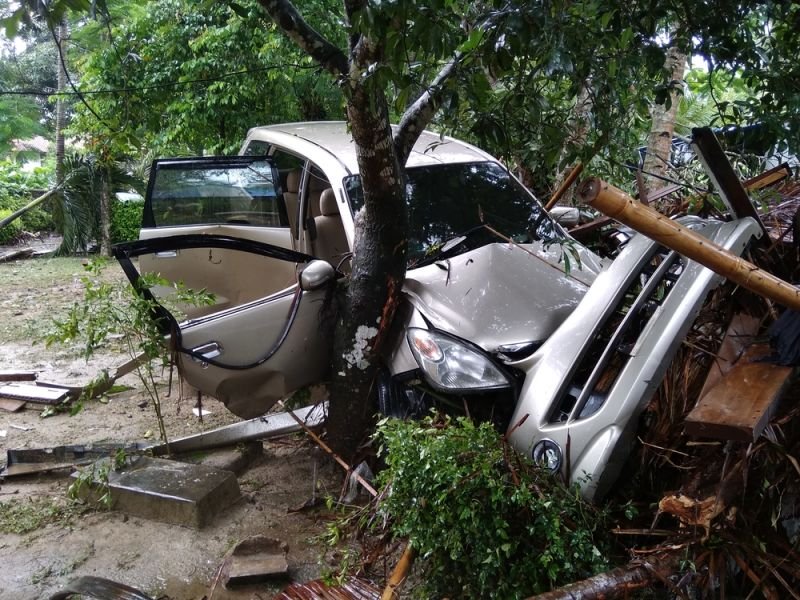
Update 3: 24 Dec 2018
As of 24 December, 7:00 WIB, the Indonesian National Disaster Management Agency (BNPB) Command Post reported 281 deaths, 1,016 injured, 57 missing and 11,687 people displaced. Physical damage includes 611 damaged housing units, 69 damaged hotel-villa units, 60 damaged shops, and 420 damaged vessels.
While the affected areas are slowly showing signs of recovery, with the reopening of restaurants and shops, the streets remain blocked, making it difficult to access the health post and health centres.
MSF has mobilised three teams: one team is currently supporting the Carita Health Center, which is now clean and running; and the second team is supporting the Labuan Health Center. In both centres, MSF is augmenting the health personnel attending to the injured. There is a third team, which is mobile, visiting the various communities to treat injured patients who could not go to the hospitals/health centres. Case management being done by the MSF teams is ongoing, with severe cases being referred to hospitals.
Update 4: 26 Dec 2018
According to the Indonesian National Disaster Management Agency (BNPB) as of 25 December, 14:00 hrs, a total of 16,082 people have now been displaced in the five districts affected by the tsunami – Pandeglang and Serang in Banten Province, and Lampung Selatan, Tanggamus, and Pesawaran in Lampung Province. There are now 429 deaths; 1,485 persons injured, and 154 persons missing. Damages include 882 houses, 73 hotels and villas, 60 culinary stalls, 434 boats, and around 65 vehicles.
In Labuan, MSF has a medical team stationed in the health centre to support the delivery of medical service to outpatients. To-date, the Labuan Health Center admitted 74 wounded and discharged 66 patients. A total of 8 patients have been referred to the hospital, and 9 bodies have been received. There are still many people currently visiting the centre to seek treatment despite power cuts in the area.
In Carita, MSF has been unable to reach the centre today, 26 December, due to the flooding caused by heavy rains that started in the evening of 25 December. Medical coordination with the health centre staff is being conducted via phone calls. As of 25 December, the Carita Health Center admitted 99 injured patients who were immediately released after treatment. The centre has also received 65 bodies.
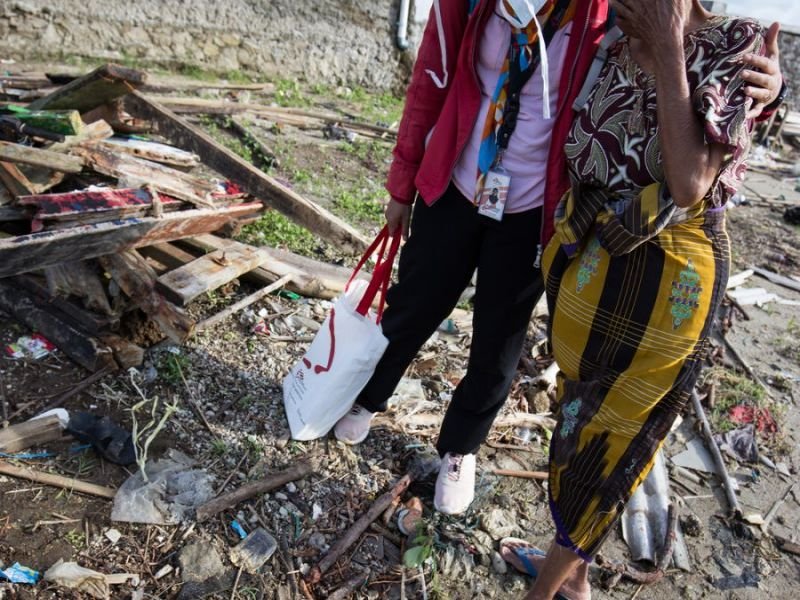
“Aside from supporting the health centres, MSF has been conducting a mobile clinic from the third day after the tsunami hit the area. We visited the survivors who have evacuated to higher ground by foot. Some of them have been injured as they were either trying to escape the rising water or as they were hit by rubble. We saw many injured people in the remote communities who have not received any treatment. So, we cleaned and dressed their wounds. Afterwards, we will conduct follow-up visits to check on their condition and make sure that they heal properly,” said Dina Afriyanti, an MSF midwife.
Sulaiman Warawu, the MSF Health Promoter, emphasised, “As MSF has been here in Banten since early this year for the adolescent health project, this area feels like home. So, we have committed to support the health centres and the people affected. We will continue conducting the mobile clinic and will also do follow-ups to ensure the full recovery of the patients.”
Update 5: 30 Dec 2018
Day 7: MSF Team in Pandeglang District Continues Providing Medical Care to Tsunami Victim: Labuan, 29 December 2018
The MSF team is currently on day 7 of its provision of medical support to the health centres in Labuan and Carita — which are among the most affected areas by the tsunami that hit Sunda Strait in Indonesia — as well as its operation of a mobile clinic, and conduct of medical follow-ups among internally displaced peoples’ (IDPs) shelters and communities.
“MSF has set up two types of emergency medical teams, fixed and mobile. We are supporting the existing health centres and visiting the affected populations in the communities. In the health centres, MSF is providing medical care as well as ensures that Infection-Prevention-Control protocols are in place,” said Dr Dirna Mayasari, the Deputy Medical Coordinator of MSF Indonesia.
The MSF team has also initiated the provision of Psychological First Aid (PFA) among a few admitted patients. A mental health programme will be rolled out by MSF in the coming weeks.
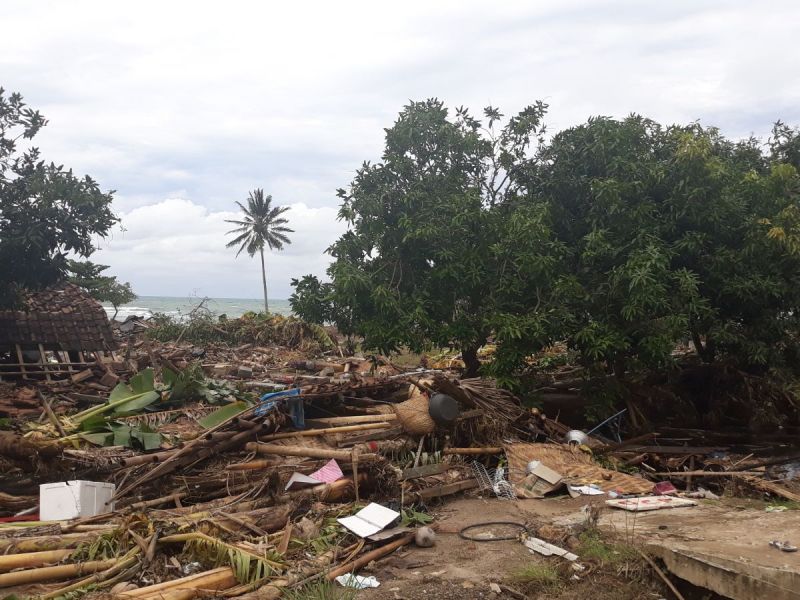
As of 28 December 2018, the MSF team has treated and referred 44 patients in the two health centres in Labuan and Carita. The mobile clinic run by MSF has treated a total of 147 patients coming from 10 kampongs/shelters. MSF will also provide follow-up medical check-ups to 12 pregnant women from the shelters and additional 13 patients. Some patients in need of medicines for chronic diseases have also been identified.
As per evaluation of MSF, the urgent medical needs of the tsunami survivors include effective medical follow-ups for trauma patients and those with chronic diseases; antenatal and post-natal care as well as safe delivery for pregnant mothers; and early detection of possible disease outbreaks.
MSF has also assessed the limited access to water and toilet facilities in almost all the evacuation shelters. Hygiene and sanitation must also be improved. Other areas for improvement are on the food delivery system and the provision of blankets and sheets, especially in this rainy season. Thus we are coordinating with the authorities to improve those areas.
Possible expansion of MSF medical interventions
MSF is assessing the expansion of its current medical interventions to also cover Panimbang Sub District, located on the southern part of Pandeglang.
“This (Panimbang Sub District) is one of the worst-affected areas and difficult to reach. There are many affected people in this area who have not yet received medical care and support,” said Dr Nyi Wynn Soe, the Medical Coordinator of MSF Indonesia.
Based on a rapid assessment study conducted by MSF, the villages in the Panimbang Sub District are quite remote and the people affected are scattered among the host communities in the hills. In an initial MSF exploration, in collaboration with the concerned Indonesian health centres, the team treated some patients they met along the way and referred some of them to a hospital.
Update 6: 31 Dec 2018
With MSF’s support, the Labuan and Carita health centres continue their medical services. The MSF medical team has been providing case management, infection prevention and hygiene management, inventory and other needs assessments in the health centres. This has been greatly valued support and important to the continuation of care for patients. Plus, the process of referring the patients have also been going well, with MSF having contacts with the available ambulances in the sub-districts.
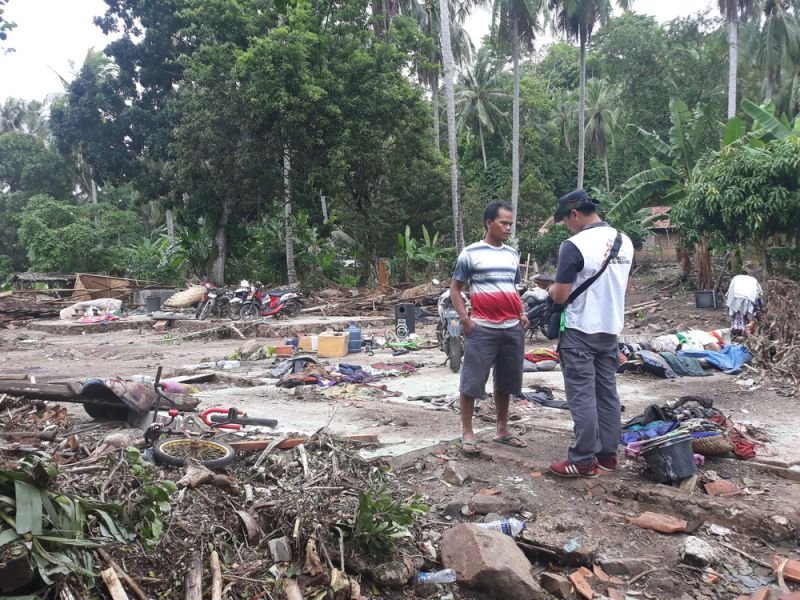
Meanwhile, MSF’s mobile clinics have reached 15 kampongs (villages)/posts in Labuan and Carita sub-districts, in Pandeglang. In these areas, patients who did not have access to the health centres were treated, and various services such as wound care, pregnancy care and child deliveries, treatment of chronic diseases and chronic infection, etc. have been provided. Psychological first aid and psychosocial support have also been given however more mental health support will be rolled out in the next few days. Assessments have also been made to properly support the medical needs of the internally displaced peoples, and of the local health posts and health personnel, such as the midwives. MSF is also finding cadres to conduct case follow-ups and community engagements.
As of 31 December, MSF has conducted 326 medical consultations, with 223 female patients and 103 male patients. The team has recorded 45 patients under five years old, 278 are above five years old, and two have not been registered. The MSF emergency response team has also treated 16 pregnant mothers and conducted medical follow-ups on 15 patients. The most common medical cases encountered were upper respiratory tract infections, myalgia, cephalgia, and accidental trauma.